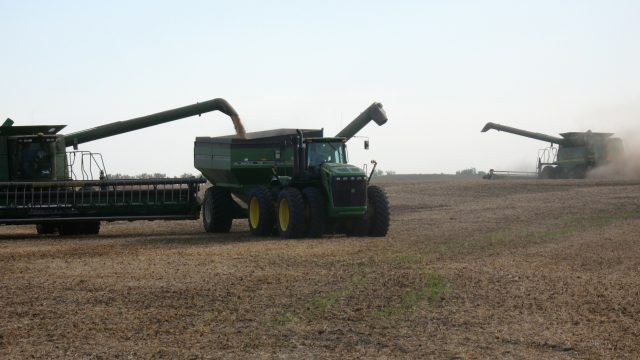North Dakota Turns Away From Ban On Corporate Farming To Save Swine, Dairy Farms

For 83 years North Dakota has had one of the toughest bans on corporate farming in the nation. While corporations can own and work farmland in the state, those corporations can only exist among family members. Today the state House approved a bill which would exempt swine and dairy farms from that corporate ban, allowing investment among people who are not family members into pig and dairy farming ventures.
SB2351 had passed the state Senate previously. The House and Senate must now reconcile some minor amendments to the legislation before it goes to Governor Jack Dalrymple for signature.
As modest a reform as this is, it represents a sea change in the state’s approach what is historically its most important industry. “It should be expanded to other areas of farming,” Rep. Craig Headland, a Republican from Montpelier, said during the floor debate though he said he didn’t want to “muddy the waters” with that debate today.
I was surprised that there was so little debate about the bill from Democrats. Just two Democrats rose and spoke in opposition to the law. House Minority Leader Kenton Onstad (D-Parshall) gave a rambling speech supposing that “out of state corporations” would use this reform as a loophole to come in and buy up farmland.
“It’s hard to believe that companies like Walmart are going to come in and buy farmland just to own it,” Headland said in response to that assertion.
Rep. Marvin Nelson (D-Rolla) also spoke against the bill.
The bill carrier for the legislation was Rep. Dennis Johnson (R-Devils Lake), and in describing the amended legislation to the floor he made what is the most salient and convincing argument in favor of these reforms: States with no restrictions on corporate farming, or at least easier restrictions, are doing a better job with dairy and swine farming.
Speaking about dairy farming specifically, Johnson pointed out that there has been a 41.5 percent decrease in dairy production in North Dakota over the past decade while other states in the region have seen anywhere from a 7 percent to 52 percent increase in production (he noted that swine production has also fallen). Dairy production has gotten so low in the state that dairy processors here must import milk from other states to process.
“It may be corporate milk we’re importing,” Johnson said.
Indeed. There’s the rub.
The ban on corporate farming is doing more harm than good. Easing the ban will help swine and dairy farmers. Eliminating the ban entirely would no doubt be a boon for the entire agriculture industry.




